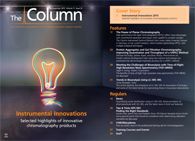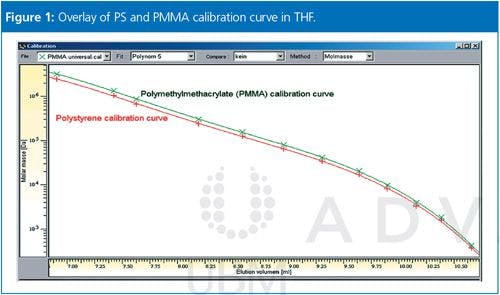Professor Michel Dreux
It is with great sadness we announce the death of Professor Michel Dreux. Professor Dreux was a professor at the University of Orléans, France.
It is with great sadness we announce the death of Professor Michel Dreux. Professor Dreux was a professor at the University of Orléans, France. Head of a Chromatography Laboratory, he merged his team with a team of organic chemists to create the Bioorganic and Analytical Chemistry Laboratory (LCBA), which became the Institute of Organic and Analytical Chemistry (ICOA) in 1995, by merging with other carbohydrateâsynthesisâfocused laboratories.
Head of the Analytical Department in this Institute, he continued his research on both liquid chromatography and capillary electrophoresis. He taught hundreds of students at the University of Orléans, and supported several Ph.D. studies in his laboratories. He was highly and unanimously appreciated by both his colleagues and students for his readiness to help, the relevance of his advice, and his kindness.
Focused on carbohydrate and non-chromophoric chemical and biochemical species (amino acids, ions) analysis in the 1980s, Professor Dreux developed on his own a first prototype of an evaporative light-scattering detector (ELSD). This first device was the pioneer of several generations of low-temperature evaporative lightâscattering detectors (LT-ELSD).
He produced numerous scientific publications and several patents to improve the LT-ELSD technology and to emphasize the relevance of this detection mode in liquid chromatography and supercritical fluid chromatography. His works on the detector originated several Ph.D. and scientists research programmes within the University. He also received the “Palmes Académiques” award, which is a specific decoration for services to Education in France.
In 2002, he entirely joined Sedere as the Scientific Director in order to continue the development of new ELSDs. He was a friend and a mentor for most people at his University and at Sedere, and is terribly missed today. - Rodolphe Pennanec, Sedere

New TRC Facility Accelerates Innovation and Delivery
April 25th 2025We’ve expanded our capabilities with a state-of-the-art, 200,000 sq ft TRC facility in Toronto, completed in 2024 and staffed by over 100 PhD- and MSc-level scientists. This investment enables the development of more innovative compounds, a broader catalogue and custom offering, and streamlined operations for faster delivery. • Our extensive range of over 100,000 high-quality research chemicals—including APIs, metabolites, and impurities in both native and stable isotope-labelled forms—provides essential tools for uncovering molecular disease mechanisms and exploring new opportunities for therapeutic intervention.
New Guide: Characterising Impurity Standards – What Defines “Good Enough?”
April 25th 2025Impurity reference standards (IRSs) are essential for accurately identifying and quantifying impurities in pharmaceutical development and manufacturing. Yet, with limited regulatory guidance on how much characterisation is truly required for different applications, selecting the right standard can be challenging. To help, LGC has developed a new interactive multimedia guide, packed with expert insights to support your decision-making and give you greater confidence when choosing the right IRS for your specific needs.

.png&w=3840&q=75)

.png&w=3840&q=75)



.png&w=3840&q=75)



.png&w=3840&q=75)











